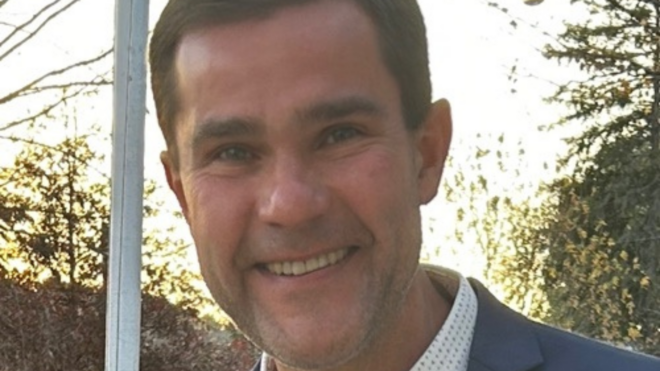
New reports are shedding light on the death of a prominent cancer doctor and her infant daughter in an apparent murder-suicide in New York, on August 5. Dr. Krystal Cascetta, 40, reportedly shot her 4-month-old daughter and then turned the gun on herself. At the time, a motive was unclear, but now some say that postpartum mental health may have played a role in the deaths.
The shootings took place in the town of Somers, in Cascetta's $1 million home, which she shared with Tim Talty, owner of energy bar company Talty Bar. The story stands as a reminder that even though things may seem perfect on the outside, there are sometimes struggles friends and family may not even know about.
More from CafeMom: Mom Suffering From Postpartum Depression Dies by Suicide 9 Days After Birth of Twins
Mental health may have played a role in Cascetta's tragic death.
Per the New York Post, investigators told CBS News that they are looking into a link between mental health conditions, including postpartum psychosis, and the well-loved physician's death. This story is just the latest in a string of recent reports about mothers allegedly harming their children or themselves due to mental illness.
The gun used in the reported murder-suicide was legally registered to Talty.
Any mother can suffer from postpartum mental health issues.
CBS News reported that postpartum mental health issues affect up to 20% of new mothers. Doctors suspect that was the case in Cascetta's death.
"It was absolutely heartbreaking to hear this news," mental health advocate Adriana Pentz told CBS News.
Pentz herself suffered from postpartum depression and wants to normalize this very real condition. "I started to withdraw from my surroundings. I was feeling very nervous. I became very worried about my daughter," Pentz said.
Just because she was a doctor doesn't mean Cascetta was immune to postpartum depression.
Although highly educated, Cascetta likely faced the same struggles as every other mom. The difficulties of adjusting to life with a newborn aren't allocated to just some moms.
"Really does not discriminate based on education, or age, or how badly a woman wants a baby or wants to be a mom," Dr. Catherine Daniels of Westchester Medical Center told CBS News.
It truly does take a village, and new moms need help, even if they don't ask for it.
Daniels stressed that it is crucial for new moms to have love and support, and for those around them to keep an eye and ear open for changes in their behavior.
"With an eye towards women seeming very anxious and concerned about the welfare of the baby, women doubting their own ability to adequately care for the baby, and a real sort of sadness and disinterest and withdrawal," Daniels said.
More from CafeMom: MA Mom Lindsay Clancy May Have Had Postpartum Anxiety Before Allegedly Killing Her 2 Kids
A new postpartum medication just received approval from the Food and Drug Administration.
In an email to CafeMom, spokesperson for Zurzuvae, explained that this new medication is the first and only oral medication approved to treat postpartum depression. It is an exciting development that many hope will improve the mental health of new moms.
"Zurzuvae is the first and only pill approved to treat PPD: It can provide rapid relief for those living with the condition – which previously had no approved oral treatment option. There is a huge need for PPD treatment: PPD symptoms are reported to affect approximately 500,000 women in the United States annually, and PPD remains significantly underdiagnosed and undertreated," she explained.
Note: If you or any of your loved ones are struggling with suicidal thoughts, you can always reach out to the 988 Suicide & Crisis Lifeline by calling 988. They are available 24/7 by phone or online chat.




